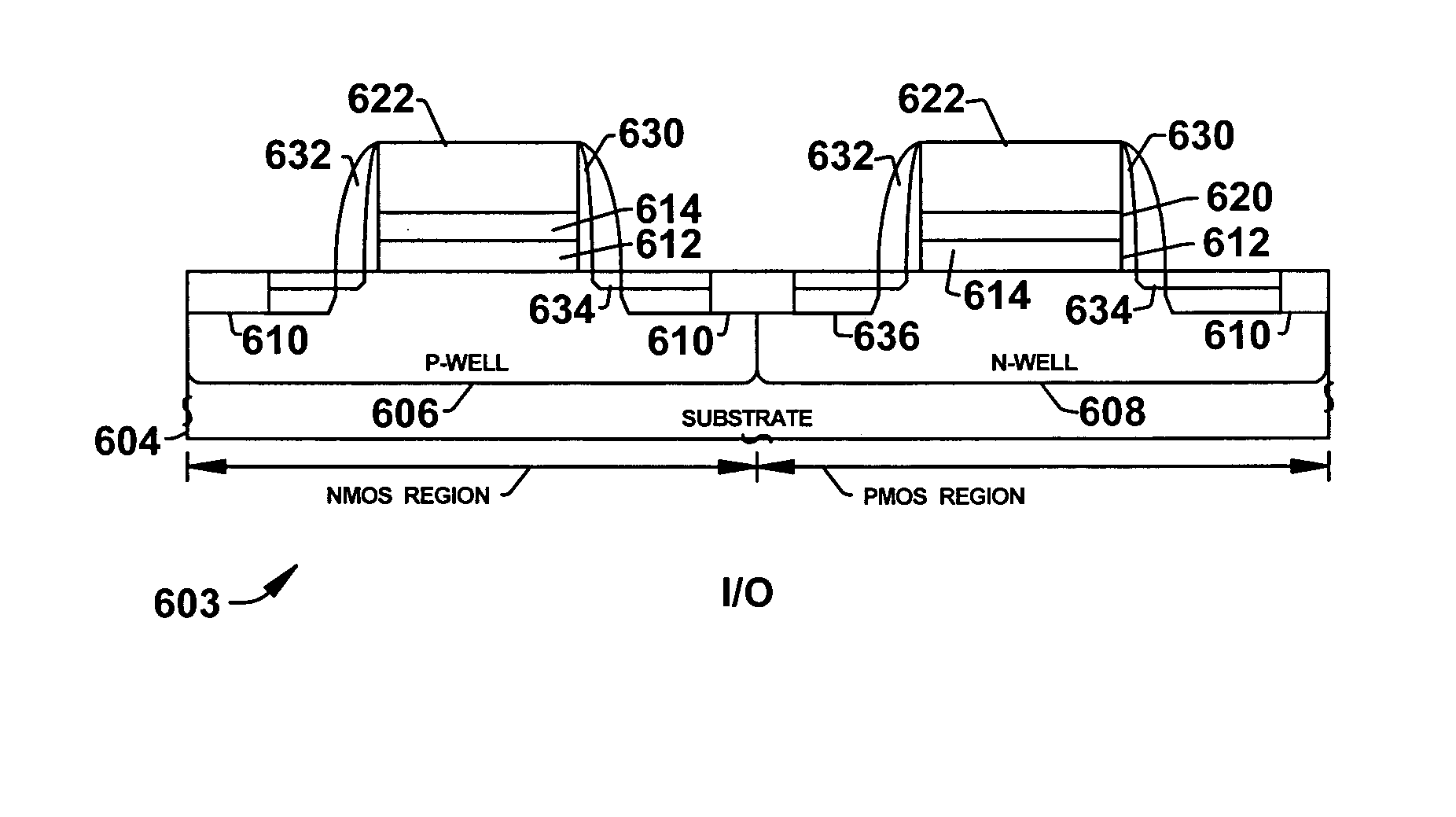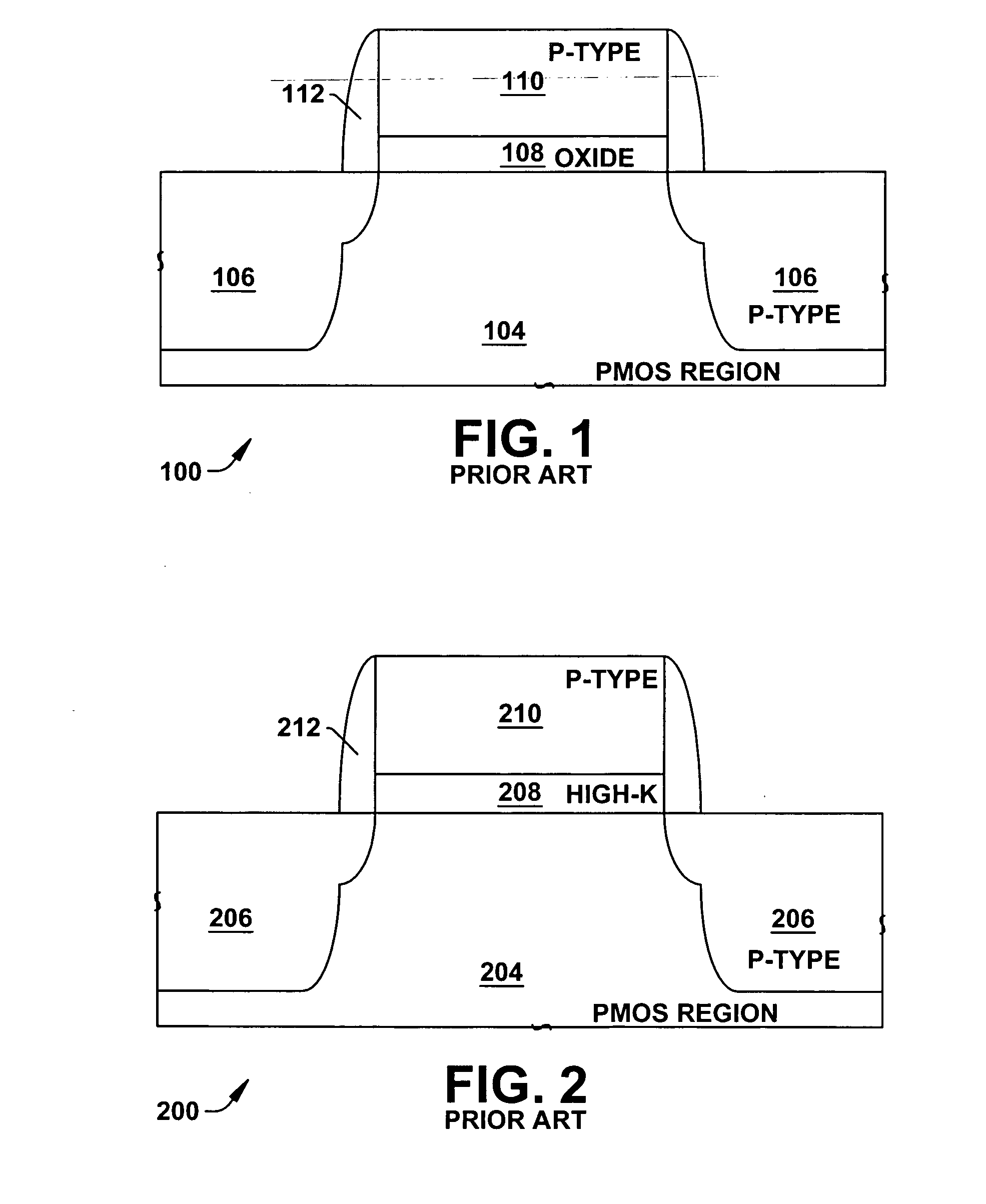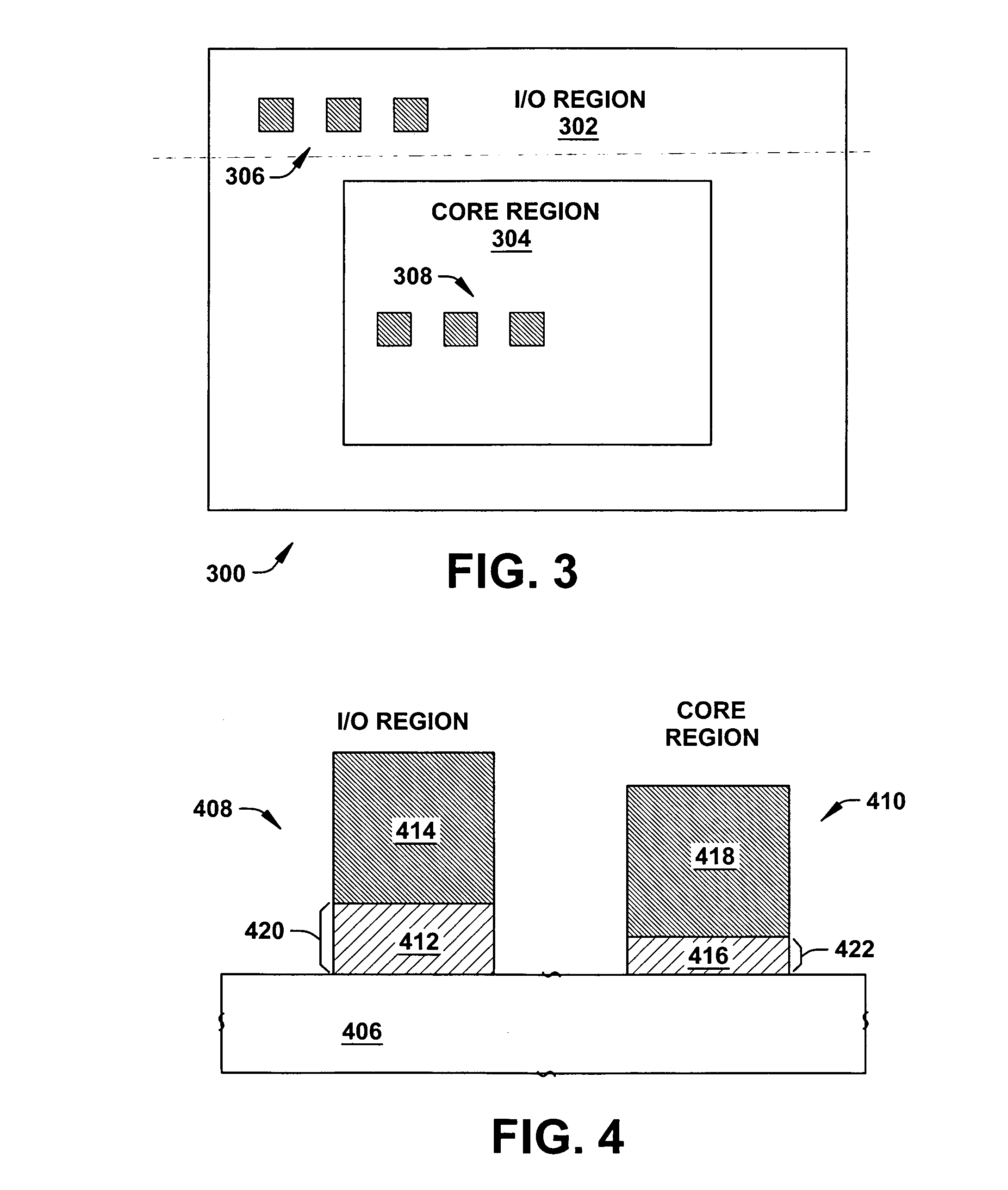Semiconductor CMOS devices and methods with NMOS high-k dielectric formed prior to core PMOS silicon oxynitride dielectric formation using direct nitridation of silicon
- Summary
- Abstract
- Description
- Claims
- Application Information
AI Technical Summary
Benefits of technology
Problems solved by technology
Method used
Image
Examples
Embodiment Construction
[0020] One or more implementations of the present invention will now be described with reference to the attached drawings, wherein like reference numerals are used to refer to like elements throughout, and wherein the illustrated structures are not necessarily drawn to scale.
[0021] It is appreciated that semiconductor devices can include transistor devices that operate at different voltages in different regions of the semiconductor device. As a result, these different devices require varied dielectric thicknesses. One conventional mechanism to account for the different types of devices is to form the transistor devices with the same oxide (silicon dioxide) dielectric thickness required for the higher voltage operation. As a result, transistor devices operating at a relatively low operating voltage were fabricated with a thicker gate dielectric than necessary. This extra thickness can slow operation or speed of such devices. Accordingly, performance of the semiconductor device, part...
PUM
 Login to View More
Login to View More Abstract
Description
Claims
Application Information
 Login to View More
Login to View More - R&D
- Intellectual Property
- Life Sciences
- Materials
- Tech Scout
- Unparalleled Data Quality
- Higher Quality Content
- 60% Fewer Hallucinations
Browse by: Latest US Patents, China's latest patents, Technical Efficacy Thesaurus, Application Domain, Technology Topic, Popular Technical Reports.
© 2025 PatSnap. All rights reserved.Legal|Privacy policy|Modern Slavery Act Transparency Statement|Sitemap|About US| Contact US: help@patsnap.com



